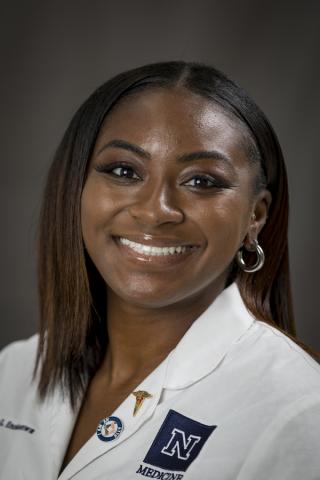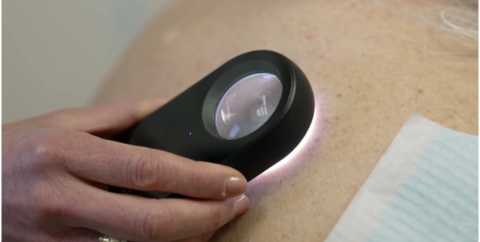Highlighting Skin of Color This Black History Month
02 February, 2022
By Maebob Enokenwa

February is Black History Month! It is the time of year that we spotlight the impact Black people have had in this country’s history. While we generally highlight the accomplishments and tremendous achievements that have been made, it is equally important to take time to highlight the challenges that still face our community.
There is no shortage of healthcare disparities in the Black community that lead to poorer physical and mental health outcomes. While we often think of things such as high blood pressure, diabetes, and colon cancer, what can be overlooked are skin conditions. Often, common ailments such as eczema or rashes look different on darker skin.
As a medical student interested in dermatology, what has drawn me to the field is the change I can make as a Black woman entering this space. Often in medical textbooks and presentations, skin pathology is only shown on lighter skin tones. For students and patients who don’t see themselves represented in these materials, it is hard to believe that these common skin conditions can actually impact them.
The idea that Black people, and more generally darker skinned individuals, don’t need sunscreen is something I’ve heard for years. Growing up in sunny Las Vegas and spending years outside playing soccer and lifeguarding on the Strip, I’ve been asked why I apply sunscreen when I don’t really need it. When beliefs such as these are reinforced by lack of representation in educational material, it is hard to change perspectives.
Misconceptions about skin of color and skin cancer leads to people of color getting skin checks less often and having cancers being found at later and more serious stages. While skin cancer is often less common in skin of color, it does not mean that it is impossible. Surprisingly enough, in people of color, skin cancer can look different and present on areas of the body that don’t typically have a lot of sun exposure. Most famously, Bob Marley died of skin cancer at the age of 36 after mistaking a melanoma for a bruised toenail.
Black History Month is important to celebrate the accomplishments and achievements made by Black people of the years past, but it is also vital to reflect on how certain conditions disproportionally impact our community. This time of the year is a great opportunity to learn more about these challenges and make strides to increase awareness of certain problems. As an aspiring future dermatologist, I hope to help communities of color recognize and see themselves represented in the field.
Maebob Enokenwa is a third-year medical student at University of Nevada, Reno with an interest in dermatology. Her goal is to reduce health disparities and provide medical care to underserved and underinsured people who may otherwise lack access to quality care.
You May Also Like

The Biggest Little Skin Cancer Screening Returns May 7
03.11.2025
Sunshine is a way of life in Nevada, but with more than 300 days of sun each year, skin cancer is a serious concern. That’s why Dr.

The Biggest Little Skin Cancer Screening Returns May 7
03.11.2025
Sunshine is a way of life in Nevada, but with more than 300 days of sun each year, skin cancer is a serious concern. That’s why Dr.

Yogurt May Help Prevent Colon Cancer
02.18.2025
A new study suggests that long-term yogurt consumption may help protect against aggressive colon cancer by promoting a healthy gut microbiome.